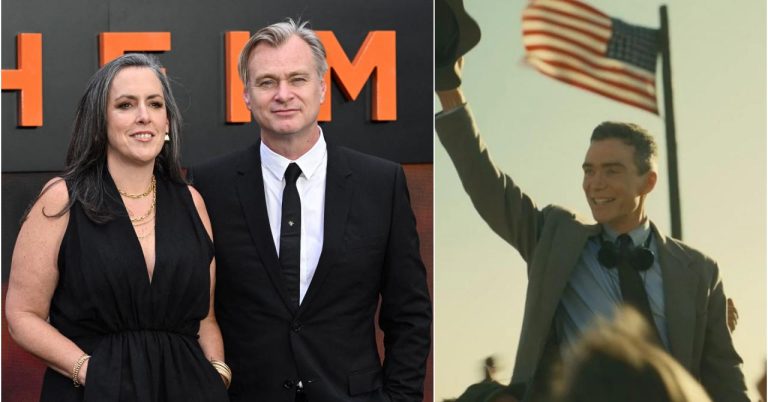Venice 2023: miniature Wes Anderson and conquering Mads Mikkelsen
Seen at the Mostra, a haiku adapted from Roald Dahl, The Wonderful Story of Henry Sugar, and a good Danish historical film, Bastarden.
Barely more than three months after revealing Asteroid City at Cannes, Wes Anderson is already presenting a new film in Venice (out of competition), The Wonderful Story of Henry Sugar (The Wonderful Story of Henry Sugar in VO). Not quite a film, in fact: a 37-minute miniature shows in hand, adapted from a story by his bedside author Roald Dahl (which he had already brought to the screen Fantastic Mister Fox). Available on Netflix September 27 next, this Henry Sugar kicks off an anthology of Dahl adaptations by Anderson, which plans to work on three other short stories by the writer.
The Wonderful Story of Henry Sugar is a sort of filmic haiku, a microscopic theoretical treatise (barely begun, it is already finished) around directing and the art of storytelling. In a setting halfway between a theatrical performance and an old-fashioned film studio, with sets on rolling panels changing before our eyes and exhibition of staging artifices (travelling rails and technicians in the field), a a small troupe of actors brought together by Anderson play several roles and tell stories in front of the camera that fit together like Russian dolls.
Ralph Fiennes, in the role of Roald Dahl, begins by telling the wonderful story of Henry Sugar (the man who had the incredible gift of being able to see with his eyes closed), before passing the baton to Benedict Cumberbatch, who passes it on to Dev Patel, who passes it to Ben Kingsley, etc… All characters and narrators at the same time. Everything goes by at full speed, to the rhythm of the usual swirling and deadpan speech of Anderson’s dialogues. The XXS format of the film and its speed of execution leave even less time than usual to marvel at the incredible sophistication of each shot (the frames, as always, teem with details that are elusive at first viewing, and which remain as at the edge of our consciousness). But it’s difficult to know exactly where Anderson is going with this mini exercise in style – we’ll have to wait for the next medium-length films announced to admire what the puzzle looks like once assembled. As for those who have given up on Wes Anderson’s cinema for good, they can play Henry Sugar and say that they can just as well watch this film by closing their eyes.
The square format of Wes Anderson opposed the Scope of Bastardena.k.a The Promised Land (its international title), historical film with western accents, as invigorating as Henry Sugar is light. Bastarden is a pure Mads Mikkelsen moviethe type of films that the actor Drunk likes to film between two Hollywood blockbusters. This one is directed by Nikolaj Arcel and co-written by Thomas Anders Jensen, the directors of Royal Wedding and of Riders of Justice : specialists, therefore, of Mads Mikkelsen movie. A genre which mainly consists of plunging the actor into hostile environments and admiring his extraordinary power of incarnation to do the rest.
We are in Denmark, in the middle of the 18th century, and our man Mads plays here a soldier of modest origin (the “bastard” of the original title is him), who has managed to rise socially thanks to his exploits warriors, and who wants to gain the king’s favor by planting potatoes in the heather of the unattractive peninsula of Jutland, reputed to be infertile. There, he will come into conflict with a completely lit aristocrat, the type who defenestrates the servants for a yes or no, and who scaldes the small staff to entertain his guests on reception evenings – he is played by a certain Simon Bennebjerg, sort of a local Matt Smith. Mikkelsen is condemned for a good part of the film to witness these abuses, helpless, humiliated but impassioned, with a sad look, his chin high, the corners of his lips pointing downwards, as he knows how to do so well.
Strewn with scenes of violence, Bastarden evokes other recent historical epics tinged with westerns and class struggle, often from the Antipodes, such as The Nightingale Or The Kelly Gang – much softer and mainstream all the same, and initially calibrated to seduce the general international public, with its beloved star headlining, its arid landscapes beaten by the winds filmed with just the right amount of emphasis, a good story full of twists and turns, and noble sentiments to wrap it all up. A stone’s throw from neo-academism, perhaps, but first of all very effective.
Venice 2023: Michael Mann’s Ferrari is not a powerful car, but a solid vehicle







